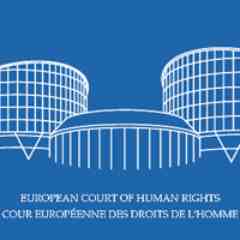Spying Case: UK Privacy Outfit Taken to European Court

Leading rights organization Human Rights Watch (HRW) and six individuals have lodged a challenge with the European Court of Human Rights.
They have demanded that the UK Investigatory Powers Tribunal confirm whether or not they were subject to surveillance by GCHQ (Government Communications Headquarters), a British intelligence and security organisation.
The challenge, filed on November 4, 2016, also seeks to know whether or not any such surveillance was unlawful and comes after claims filed with the UK tribunal in 2015.
In the earlier case, the tribunal dismissed the claims of those applicants that were not UK residents. It issued a “no determination” finding for Human Rights Watch and other claimants who were present in the UK, without revealing whether they were subjected to surveillance that was lawful or they were simply not spied on.
“The UK has defended the legitimacy of its surveillance programs in large part because its conduct is reviewed by the IP Tribunal, the only agency where people may take claims that they were spied on illegally,” said Dinah PoKempner, general counsel at Human Rights Watch. “But if the IP Tribunal refuses to review a claim, or to explain why it finds the claim unfounded, this review is meaningless.”
Human Rights Watch and the other applicants to the European court were among 650 people from around the world who filed claims with the UK tribunal in February 2015, with the help of Privacy International as part of the group’s innovative “Did GCHQ Illegally Spy on You?” campaign.
The campaign followed a series of decisions by the UK tribunal that British intelligence agencies acted unlawfully in accessing information from mass surveillance by the US National Security Agency.
Human rights groups, including Amnesty International and the South African Legal Resources Centre, were also found to have been unlawfully surveilled by the British intelligence agencies’ own bulk interception programs, Human Rights Watch said today.
In light of the massive scale of interception under these programs and the systematic sharing of intelligence between the US and the UK, it seems likely many more groups and individuals were subjected to unlawful surveillance, it was stated.
“The Tribunal’s refusal to recognize the human rights claims of non-UK residents is illogical and wrong,” Scarlet Kim, legal officer at Privacy International, said. “Victims – wherever they are – should be entitled to justice when a European court member commits a human rights violation against them on its own territory.”
Photo courtesy: European Court of Human Rights





